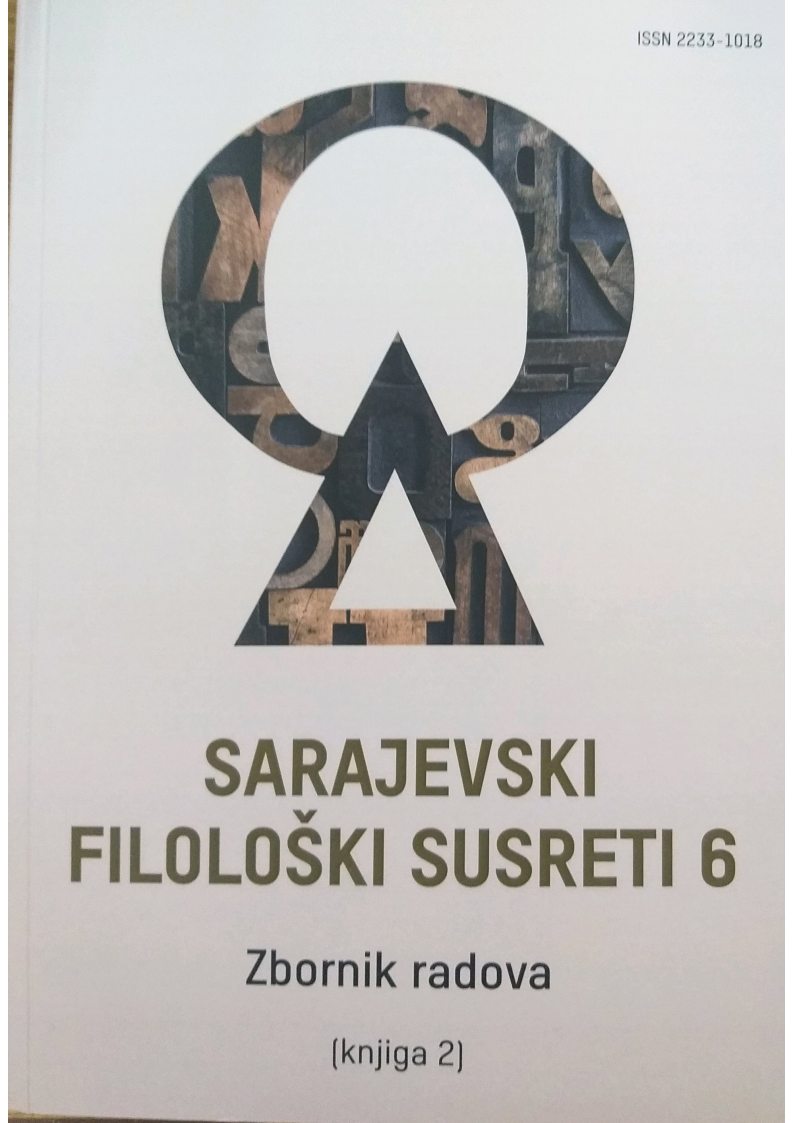Imagološka analiza opusa Antuna Kneževića
Imagological analysis of Antun Knežević’s opus
Author(s): Ena Begović-SokolijaSubject(s): Bosnian Literature, Croatian Literature
Published by: Bosansko filološko društvo
Keywords: Antun Knežević; imagology; perception; the Other; political; ethnic and religious identity;
Summary/Abstract: The Bosnian Franciscan priest Antun Knežević (1834–1889) lived in the turbulent circumstances of Bosnia in the 19th century and in his literary and historical works, as well as his social and political activities, one recognizes echoes of the ideas of Romanticism and of Croatian Illyrism. Due to his ideas about Bosnian autonomy, Knežević tried to prove the uninterrupted continuity of Mediaeval Bosnian Statehood. This paper will analyze Knežević's fictional (and non-fictional) texts from an imagological perspective. The focus will be on his Krvava knjiga (Eng. The Bloody Book) (1869), the 4th volume of his Bosanski prijatelj (Bosnian Friend) (1870), as Knežević was both its edi tor and author, and the notes in his annals from Varica, which he originally titled Njeke moje bilješke iz zadnjih godinah (Some of My Notes from Recent Years), where he was recording the events from October 1869 until his death. We will attempt to prove the thesis that this Bosnian Franciscan priest, in the heteroperceptions, autoperceptions and metaperceptions contained in his texts relied not only on the Europocentric views about the Others, but also on the imagologicaly potent earlier Bosnian-Herzegovinian Franciscan literary traditions, i.e. on even more ancient anti-Turkish attitude in early Croatian literature. Unlike the texts that precede these ones, where the religious, social, 90 cultural and civilizational Other encompassed all the intra-textual categories the Religious Enemy, the Oppressor, the Unfair Judge, the Barbarian, but also the Mighty Warrior and the Conqueror), the last two categories are missing from Knežević's writings, along with any feeling of respect for the Other, even as an Enemy. The change may be explained by socio-historical circumstances – the weakening of the Ottoman Empire and more and more certain change of the rule in Bosnia.
Journal: Sarajevski filološki susreti: zbornik radova
- Issue Year: 6/2023
- Issue No: 2
- Page Range: 70-90
- Page Count: 21
- Language: Bosnian

